












Credit builder loans (CBLs) are small installment loans typically between $300 and $1,000 designed to help individuals build or improve their credit score, while also encouraging savings Here’s how they work:
The lender places the loan amount into a locked savings or certificate of deposit (CD) account. The borrower makes monthly payments, which are reported to the major credit bureaus: Equifax, Experian, and TransUnion.
Once the loan is fully repaid, the borrower receives the funds minus any applicable fees or interest. Unlike secured credit cards, no upfront deposit is required. CBLs can help establish credit and build savings at the same time
Note: People with existing debts may see limited or no score improvement, and in some cases, their score may drop if they struggle with the added payment.
Pros:
Boosts credit score through on-time payments
Easier to qualify for than traditional loans
Builds forced savings
Alternative to secured credit cards

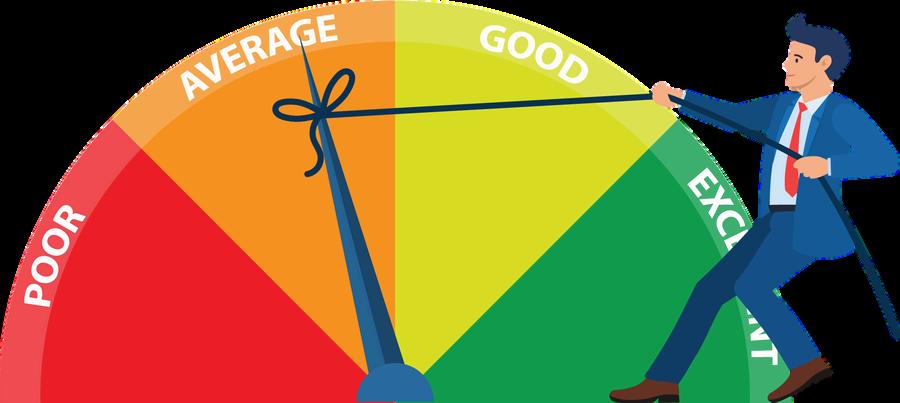
Individuals with no credit or limited credit history benefit the most.
Research shows CBLs can raise credit scores by up to 60 points (especially for those starting around 560) and increase the chances of having a credit score by 24%
Borrowers also saved an average of $253 through this process
Cons:
Some lenders charge high fees or interest
Funds locked until fully repaid
Missed payments can damage credit
May strain borrowers already managing debt
Understanding
Your credit report and credit score are essential tools that lenders, landlords, employers, and others use to gauge your financial reliability. A good credit history can help you qualify for loans, get better interest rates, rent housing, or even


Understanding
Your credit score is a number usually between 300 and 850 that summarizes your creditworthiness based on your credit report. Higher scores mean lower credit risk.
Your credit report is a detailed summary of your credit history, including: Personal Info: Name, Social Security number, addresses, employer
Credit Accounts: Details of credit cards, loans, and mortgages Payment History: Record of on-time and missed payments
Credit Inquiries: Who has checked your credit
Public Records: Bankruptcies, liens, or legal judgments (if applicable) Collections: Past-due debts sent to collection agencies
Your credit report and credit score are essential tools that lenders, landlords, employers, and others use to gauge your financial reliability. A good credit history can help you qualify for loans, get better interest rates, rent housing, or even secure certain jobs.
Military Tip:
Use Active Duty Alerts for free extra protection while deployed
Monitor your reports regularly during PCS moves or deployments to catch unauthorized activity

If you’ve never used credit or have damaged credit, building or rebuilding your credit is key to qualifying for loans, lower interest rates, and better housing options.
Apply for a Secured Credit Card:
Deposit required, but works like a regular card. Great for first-time borrowers.
Get a Credit Builder Loan:
Small loans where your payments are reported to credit bureaus ideal for new credit users
Become an Authorized User:
A trusted person adds you to their credit card, helping you benefit from their positive history
Pay Bills On Time:
Even non-credit bills like utilities or phone payments may impact your score if they’re reported.
Catch Up on Past-Due Accounts: Contact creditors to create payment plans if needed
Pay Down Credit Card Balances: Aim to use less than 30% of your available credit limit
Limit New Credit Applications: Too many inquiries can lower your score
Keep Old Accounts Open: Longer credit histories often boost your score.

Military Tip:
Free credit counseling and debt management plans are available through Military OneSource and many on-base financial readiness programs. Consider SCRA protections if dealing with old debts from before active duty.

Servicemembers Civil Relief Act (SCRA):
Caps interest rates at 6% for debts incurred before active duty and protects against default judgments in some cases
Active Duty Alerts:
Provides additional monitoring and credit report protections during deployment lasts for one year, renewable
Credit Tips Before Deployment or PCS:
Set Up Automatic Payments:
Prevent missed payments by scheduling autopay on all debts and recurring bills.
Grant Power of Attorney (if needed):
Authorize a trusted family member or representative to manage your finances while you’re away
Communicate With Creditors:
Notify lenders, credit card companies, and landlords about your deployment or PCS orders. Many offer hardship programs for servicemembers.
Freeze Your Credit (Optional):
Consider freezing your credit to prevent fraud while you’re away

Review your credit reports to check for errors or fraud
Renew your Active Duty Alert if needed
Resume regular monitoring and budgeting as you transition back to civilian life or new duty stations


A credit card lets you borrow money for purchases, up to a set credit limit. You can pay off your full balance monthly or carry it over (with interest).
Credit Limit: The maximum amount you can borrow on the card.
Annual Percentage Rate (APR): The interest rate charged on unpaid balances
Minimum Payment: The smallest payment you must make monthly to avoid late fees
Grace Period: The time during which you can pay your balance without interest
Payment History: Most important late payments can severely damage your score
Credit Utilization: High balances relative to limits lower your score.
Length of Credit History: Older accounts generally help your score.
Always pay on time—set up auto-pay if needed. Aim to pay your balance in full each month to avoid interest.
Keep your balance below 30% of your limit lower is better.
Review your statements monthly for errors or fraud.
Avoid cash advances they usually have high fees and immediate interest. Use rewards cards carefully don’t overspend just for points. Limit new credit applications to avoid score dips from hard inquiries. Consider requesting credit limit increases after positive usage history.
Caution:
Misusing credit cards can lead to debt traps, credit damage, and financial stress. Use wisely for maximum benefit.

Servicemembers may qualify for interest rate reductions and fee waivers under the Military Lending Act (MLA) and SCRA check with your lender.
A credit card lets you borrow money for purchases, up to a set credit limit. You can pay off your full balance monthly or carry it over (with interest).
Key Terms You Must Know:
Credit Limit: The maximum amount you can borrow on the card
Annual Percentage Rate (APR): The interest rate charged on unpaid balances
Minimum Payment: The smallest payment you must make monthly to avoid late fees
Grace Period: The time during which you can pay your balance without interest
How Credit Cards Affect Your Credit Score:
Payment History: Most important late payments can severely damage your score
Credit Utilization: High balances relative to limits lower your score
Length of Credit History: Older accounts generally help your score
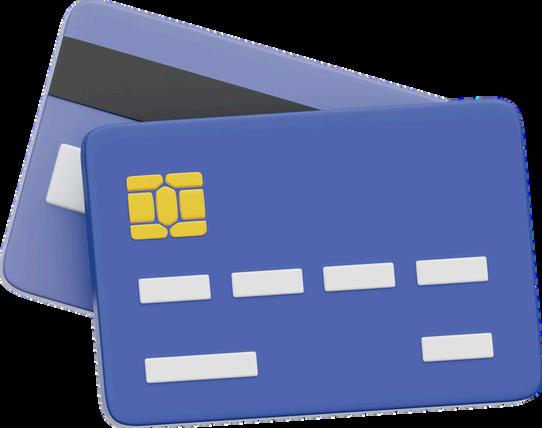

Quick Tips:
Always pay on time set up auto-pay if needed. Aim to pay your balance in full each month to avoid interest.
Keep your balance below 30% of your limit lower is better.
Review your statements monthly for errors or fraud.
Avoid cash advances they usually have high fees and immediate interest. Use rewards cards carefully don’t overspend just for points. Limit new credit applications to avoid score dips from hard inquiries. Consider requesting credit limit increases after positive usage history.
Caution:
Misusing credit cards can lead to debt traps, credit damage, and financial stress. Use wisely for maximum benefit.

Military Tip:
Servicemembers may qualify for interest rate reductions and fee waivers under the Military Lending Act (MLA) and SCRA check with your lender.

Identity theft can destroy your credit, drain your finances, and take years to fix. Military members face higher risks during deployments or PCS moves.
Common Identity Theft Threats:
Credit Fraud: Opening credit cards or loans in your name.
Account Takeover: Hijacking existing accounts.
Synthetic Identity Fraud: Creating fake identities using real data.
Medical ID Theft: Using your info for medical treatment or insurance.
Caution:
Recovery can be time-consuming proactive protection is your best defense.

Preventative Steps to Reduce Your Risk::
Quick Tips:
Monitor your credit reports regularly at AnnualCreditReport.com.
Use strong, unique passwords and enable two-factor authentication.
Shred financial documents before discarding them. Place a credit freeze to block new credit accounts (free through all bureaus).
Set up fraud alerts to be notified of suspicious activity.
Watch out for phishing emails and scam calls —never share sensitive info over the phone or email.
If You’re a Victim:
Report it to IdentityTheft.gov.
Contact credit bureaus to dispute fraudulent activity.
File police reports and notify affected creditors.
Military Tip:
Place an Active Duty Alert on your credit reports if you’re deployed it provides added protections against unauthorized accounts.
It’s the percentage of your available credit that you’re using—one of the biggest factors in your credit score, accounting for about 30% of your score.
Total Credit Card BalancesTotal Credit Limits×100=Credit Utilization Rate\frac{\text{Total Credit Card Balances}} {\text{Total Credit Limits}} \times 100 = \text{Credit Utilization Rate}Total Credit LimitsTotal Credit Card Balances×100=Credit Utilization Rate
Example:
$1,500 total credit limit.
$450 in total balances.
Utilization: 30% (aim for below 30%, ideally under 10%).
High utilization signals risk to lenders.
Lower utilization shows responsible borrowing. Quickly paying down balances can lead to fast score improvements.
Avoid closing old credit cards, as this reduces your total available credit.
Time large purchases wisely—pay them off before statements close to reduce reported utilization.
Track balances closely, especially during high-spending months like holidays or PCS moves.
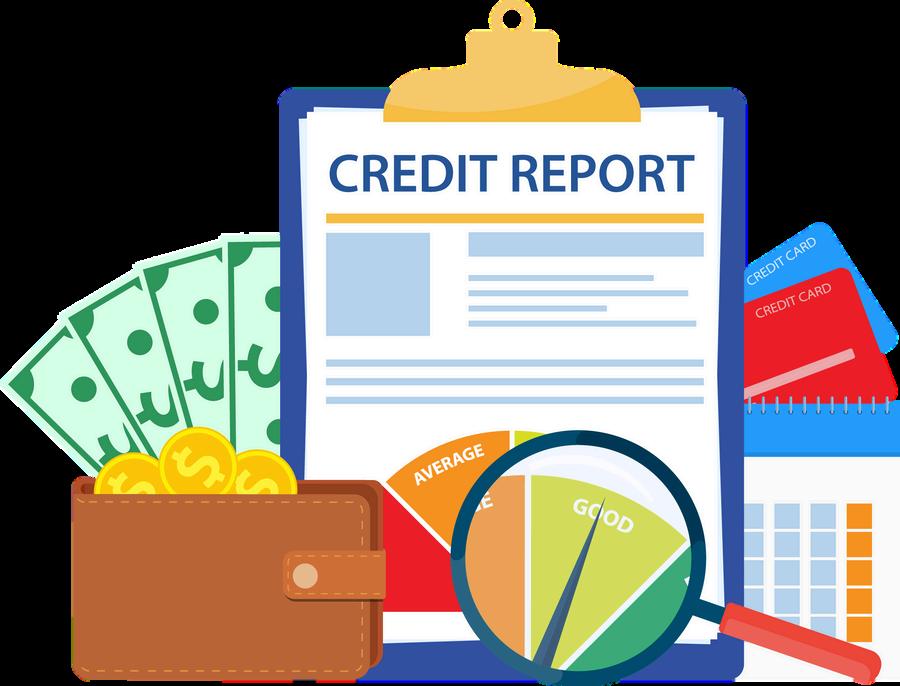
Keeping your credit utilization low is one of the simplest and most effective ways to improve your credit score fast.

Deployment or PCSrelated expenses can temporarily spike utilization budget ahead and pay down balances quickly after such transitions.
Too much debt can limit your financial flexibility and hurt your credit score. Effective debt management improves both your finances and your credit.
Common Debt Management Strategies:
Quick Tips:
Debt Snowball: Pay smallest debts first for quick wins.
Debt Avalanche: Pay debts with highest interest rates first to save money
Balance Transfers: Move debt to a low- or no-interest credit card (beware of fees).
Personal Loans: Use a loan to consolidate higher-interest debts (check terms carefully).
Military Tip:
VA offers Debt Management Programs for veterans with VA benefit debts
SCRA may also reduce interest rates on preservice debts during active duty
Debt Management Plans (DMPs): Nonprofit credit counselors can negotiate lower rates and structure repayment plans (typically 3–5 years).
Debt Settlement: Risky; may damage credit and involve large fees—best as a last resort.
Bankruptcy: A legal option for severe hardship but has long-term credit impacts (typically 7–10 years on reports).
Caution:
Be wary of “debt relief” scams promising fast fixes—work only with certified nonprofit credit counselors.

What Is the Military Lending Act (MLA)?
A federal law protecting active-duty servicemembers (and eligible dependents) from predatory lending.
Key MLA Protections:
36% Interest Rate Cap: Applies to many credit products, including personal loans and some credit cards.
No Mandatory Arbitration: You retain the right to sue lenders.
No Prepayment Penalties: You can repay early without fees.
Clear Disclosures: Lenders must provide clear loan terms before you borrow.
Loans Covered Under MLA:
Personal Loans
Credit Cards
Auto Title Loans
Payday Loans
Refund Anticipation Loans
Tip:
Loans NOT Covered:
Mortgages
Car Purchase Loans
Secured Loans (where collateral is involved)
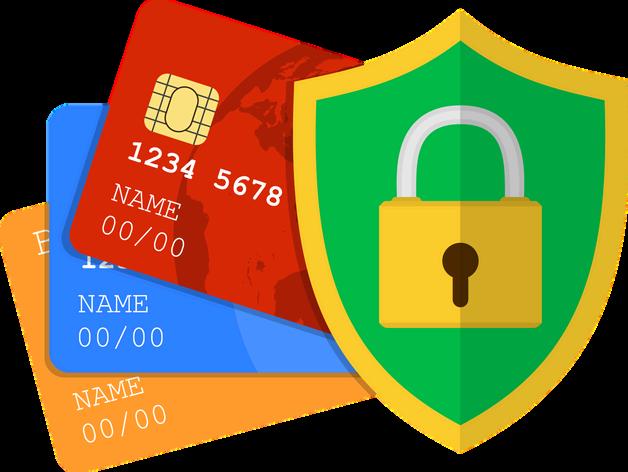
How to Use MLA Protections:
Inform lenders of your military status before borrowing.
Ask specifically about MLA protections.
Check your MLA status at MLA.DMF.CPMS.OSD.MIL.
Combine MLA with SCRA protections for broader coverage of credit and debt during active duty.

It depends. Rent payments are not automatically reported to credit bureaus—but some tools and landlords now offer reporting.
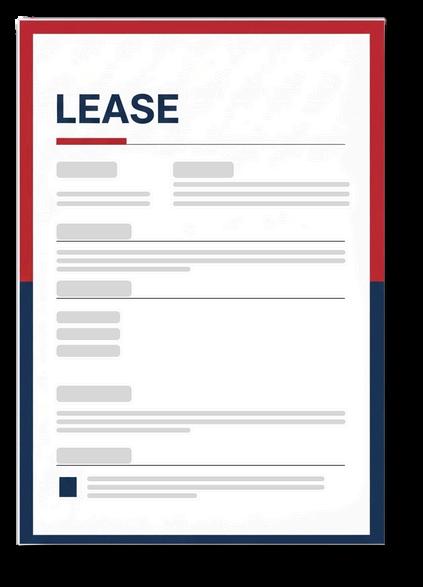
Helps establish credit history if you don’t use credit cards.
Can improve your credit score with consistent, ontime payments.
Creates positive credit data for future mortgage or loan applications.
Ask your landlord to report your rent through rentreporting services.
Sign up for services like RentTrack, LevelCredit, or Experian Boost.
Check whether your credit bureau accepts rental history.
Cautions:
Not all scoring models factor in rental data. There may be fees for using some rent-reporting services.
Late or missed rent payments can harm your credit if reported.
Under SCRA, you can terminate rental agreements without penalty due to PCS or deployment orders know your rights!

A VA-backed mortgage designed to help veterans, active-duty members, and some surviving spouses buy or refinance a home.
No Down Payment Required (in most cases).
No Private Mortgage Insurance (PMI).
Competitive Interest Rates.
Limited Closing Costs.
Flexible Credit Standards compared to conventional loans.
While VA doesn’t set a minimum score, most lenders look for 580–620+.
Lower scores may still qualify, depending on other factors (income, debts).
Good credit history can improve your loan terms and rates.

Steps to Prepare Your Credit for a VA Loan:
1 Check Your Credit Reports: Dispute any errors immediately.
2.Pay Down Credit Cards: Reduce balances to improve score quickly.
3.Avoid New Debt: No major credit applications during the mortgage process.
4 Work With VA-Savvy Lenders: They can guide you through flexible VA credit standards.

Even if you’ve had past credit issues, VA loans may still be an option. Many lenders also accept alternative credit data like rent and utility payments.
Credit report errors can lower your score, affect loan approvals, and increase your interest rates. Fixing errors can improve your credit and save you money
Incorrect personal information (name, address, Social Security number). Accounts that don’t belong to you. Incorrect balances or payment history Duplicate accounts. Fraudulent accounts from identity theft.
Get Your Reports: Access free reports from AnnualCreditReport.com.
Review Carefully: Check each section for mistakes.
Gather Documentation: Collect statements, payment records, or legal documents. Submit Disputes: File online, by mail, or by phone with the reporting credit bureau. Track Progress: Bureaus typically resolve disputes within 30 days.
After deployment or PCS moves, check your credit for errors or fraudulent accounts opened during your absence.
Always follow up to ensure the error is removed or corrected on all bureaus’ reports.

Student loans can both help and hurt your credit depending on how you manage them.
On-time payments build strong credit history
Long repayment terms may increase average account age.

Risks & Negatives:
Late payments or defaults hurt credit scores.
High balances can increase your debt-toincome ratio.

Managing Student Loans Wisely:
Quick Tips: Enroll in Auto-Pay to avoid missed payments. Explore Income-Driven Repayment Plans if you can’t afford payments. Refinance cautiously—only if it lowers your rate without losing key benefits. Keep deferments or forbearance documentation in case of disputes.
Loan Forgiveness Options:
Public Service Loan Forgiveness (PSLF): For government and nonprofit employees. Military Service Deferments & Forgiveness: Possible during active duty or for some veteran programs.
Military Tip: Servicemembers may qualify for:
Military Service Deferment.
Interest Rate Reductions (SCRA). Loan forgiveness programs for specific roles or service time

Even after retiring, credit affects housing, healthcare financing, insurance rates, and access to credit for emergencies.
Closing old credit accounts (hurts score by reducing credit history)
Over-relying on savings while ignoring credit management
Falling victim to scams targeting seniors

Keep long-standing accounts open, even with minimal use
Pay all bills on time, including utilities and insurance
Monitor your credit reports at least once a year
Debt Tip:
If living on a fixed income, avoid high-interest debt—focus on essential expenses first Consider freezing credit to prevent identity theft. Watch for suspicious phone calls or emails asking for financial info
Set up trusted contacts with financial institutions in case of future cognitive decline

How Credit Impacts Small Business Loans:
Most lenders review both your business credit (if available) and personal credit to decide whether to approve loans or lines of credit
Key Credit Factors Lenders
Evaluate:
Personal credit score (often 600+ for approval).
Business revenue and cash flow.
Time in business (startups may rely heavily on personal credit).
Debt-to-income ratio.
Collateral availability (for secured loans).
Common Small Business Loan Types:
SBA Loans: Low-interest government-backed loans, often requiring strong personal credit.
Microloans: Smaller loans ($500–$50,000) with flexible terms.
Business Credit Cards: Useful for managing short-term cash needs.
Business Lines of Credit: Revolving credit to manage ongoing expenses.
Veteran-Specific Resources:
SBA Veterans Advantage Program: Reduced fees for veteran borrowers.
Military Reservist Economic Injury Disaster Loan (MREIDL): For active-duty call-ups. VetLoan Advantage Programs: Offered by some nonprofit lenders.
Credit Tips for Entrepreneurs:
Personal credit score (often 600+ for approval).
Business revenue and cash flow.
Time in business (startups may rely heavily on personal credit).
Military Tip:
Debt-to-income ratio.
Collateral availability (for secured loans).
Veteran-owned businesses may qualify for priority lending programs and technical assistance through the VA Office of Small & Disadvantaged Business Utilization (OSDBU).

Your credit score directly influences:
Loan approval.
Interest rate (APR).
Down payment requirements.
Excellent (720+): Best rates, low or no down payment.
Good (660–719): Competitive rates available.
Fair (600–659): Higher rates, may need a larger down payment.
Poor (below 600): Limited options; subprime lenders may apply high fees.
Get pre-approved before visiting dealerships to compare offers.
Keep total auto loan applications within a 14-day window to minimize credit score impacts.
Aim for shorter loan terms (36–60 months) to save on interest.
Make a larger down payment if possible to reduce financing costs.
Avoid These Pitfalls:
Long-term loans (72+ months) with high interest.
Add-ons like extended warranties or gap insurance unless necessary
Dealer-arranged financing without comparison shopping.

Military Tip:
Some military banks and credit unions offer discounted auto loans and flexible PCS-friendly repayment terms.
Bankruptcy has serious, long-term impacts—but it can offer a financial reset for those facing overwhelming debt.
Chapter 7: Liquidation; discharges most debts. Stays on credit reports for 10 years.
Chapter 13: Repayment plan over 3–5 years. Stays on credit reports for 7 years.
Credit scores typically drop significantly after filing. You may face difficulty obtaining credit, renting housing, or getting favorable loan terms for several years.
You can begin rebuilding credit right after discharge with responsible use of secured credit cards, installment loans, and on-time bill payments.
Be cautious of “credit repair” scams offering unrealistic promises after bankruptcy Seek financial counseling to improve budgeting and credit habits.
Military Tip:
Some military relief societies and JAG offices offer free bankruptcy counseling and credit rebuilding resources for servicemembers and veterans.


Divorce itself doesn’t appear on your credit report, but shared debts and missed payments during the process can negatively affect your score.
Legal costs, new living expenses, and changes in income often result in higher debt and financial strain.
Even after a divorce decree assigns debt responsibility, both parties remain liable until loans are refinanced or closed.
Check Your Credit Reports Thoroughly
Obtain reports from Equifax, Experian, and TransUnion. Dispute any errors, especially accounts that remain tied to your ex after divorce.
Close or refinance joint credit cards, loans, and utilities to protect your credit. Simply having separate accounts doesn’t remove you from the debt.
If you’re still legally liable, keep those accounts current—even if your ex was supposed to pay
Create a Realistic Budget
Adjust to a single-income household and cut discretionary spending as needed.
Start with a secured credit card or credit-builder loan to establish your own credit history
Maintain consistent on-time payments—your payment history accounts for 35% of your score
Keep your credit utilization below 30%, ideally under 10%, and make payments multiple times each month
Consider Experian Boost and rent-reporting tools to supplement your credit profile experian.com.
Avoid applying for multiple new accounts at once—seek credit gradually
Be patient—rebuilding credit takes time, but consistent, responsible behavior leads to recovery
Servicemembers can access free legal support via the JAG office, which can help with orders, property division, and credit protection during divorce

Remember
Rebuilding credit after divorce takes time, but it's possible Separate finances, pay on time, and build credit in your own name to regain financial strength
Foreclosure stays on your credit report for 7 years and significantly lowers your credit score—often the most in the first 2–3 years
Understand the financial situation that led to foreclosure. Learning from the past is key
Pay ALL Bills On Time
Payment history (35% of FICO) is the largest factor in rebuilding credit.
Make a Budget & Stick to It
Stop financial leaks and reinforce stability. Avoid Opening New Credit Hard inquiries hurt your score and new accounts can reset progress. Get a Secured Credit Card
A secured card builds positive payment history when used properly. Keep Utilization Low
Use < 30% of your credit to optimize rebuilding. Seek Professional Help
Nonprofit credit counselors can create a solid recovery plan.
Rebuilding credit after divorce takes time, but it's possible. Separate finances, pay on time, and build credit in your own name to regain financial strength.
Military Tip:
Military relief societies and JAG offices offer free counseling for servicemembers recovering from foreclosure

Default usually occurs after 90–120 days past due. It can damage your credit almost as severely as foreclosure—though it doesn't appear as a public record
Contact Your Lender Immediately
Explore options like forbearance, loan modification, or repayment plans.
Resume Payments Promptly
Getting current halts further negative reporting and shows good faith.
Confirm Credit Reporting Status
Ask for a disaster or hardship code if applicable— these can soften impact.
Keep Other Accounts Current
On-time payments across credit accounts rebuild trust.
Use Secured Credit or Credit Builder Loans
Adds positive installment or revolving credit data to reports.
Watch Utilization Carefully
Stay under 30% to prevent further score damage.
Timeline
Defaults last 7 years on reports—but prompt repayment and rebuilding can improve scores within 12–24 months.
Military Tip:
Active-duty borrowers may have special forbearance options under SCRA ask your servicer.

Contact All Account Providers
Request forbearance, adjusted payment plans, or fee waivers—especially lenders impacted by disaster assistance policies .
Get Disaster Codes on Reports
These codes notify lenders of your situation and prevent negative marks.
Document Communication
Keep logs and copies of conversations and agreements.
Prioritize Essential Bills
Natural disasters can cause missed payments, service disconnections, or mail interruptions—often unintentionally hurting credit
Military Tip
Veterans may tap into VA disaster assistance and loan products—call the VA Loan Technician line (1‑877‑827‑3702).
Keep payments for mortgage, insurance, utilities, and car loans current.
Monitor Your Credit Reports Frequently
You can access one free annual report from each bureau and additional Equifax reports through 2026.
Beware of Scams
Fraud spikes during recovery—safeguard personal info and verify assistance sources.
Utilize Special Loan Programs
SBA Disaster Loans for home/property recovery.
FHA 203(h) loans: 100% financing for disasterdestroyed homes, credit score 500+
With active lender help and on-time payments, credit damage can be limited or repaired in months—not years.

varep.net
HUD-approved financial counseling nonprofit and Veteran Service Organization (VSO) supporting veteran and military families with homeownership education, VA home loan advocacy, credit counseling, financial literacy, and foreclosure prevention programs.

militaryonesource.mil/financial-legal/personal-finance Free, confidential financial counseling, budgeting help, debt management support, deployment/PCS financial planning, and more.
usalearning.gov/finred Offers online tools, webinars, and financial courses covering saving, investing, credit management, and avoiding high-risk lending.
usaaef.org Military Reconnect – Money Management International (MMI)
Free military-focused courses, calculators, and tools on credit, home buying, retirement, investing, and financial planning.
moneymanagement.org/education/military Provides military-specific financial coaching, webinars, and interactive courses on budgeting, credit, debt, and more.
Readiness Program
usar.army.mil/ARFP/FRP Focuses on Reserve component members, offering debt prevention, saving strategies, and goal setting.
consumerfinance.gov/consumer-tools/servicemembers Covers SCRA, MLA protections, complaint filing, predatory lending protections, and military financial resources.
Army: myarmybenefits.us.army.mil
Navy: ffr.cnic.navy.mil

(FRP/PFMP)
Air Force/Space Force: afpc.af.mil
Coast Guard: dcms.uscg.mil
FTC Military & Veteran Fraud Prevention
consumer.ftc.gov/features/feature-0014-militaryveterans
Guidance on avoiding scams such as predatory lending, fake charities, and housing fraud.
National Consumer Advocates for Service Members (NACA)
consumeradvocates.org/for-consumers/militaryconsumers
Provides legal information on fighting predatory lending, credit scams, and military-specific consumer abuses.

On-Base Resources
Credit Bureaus – Active Duty Alerts & Credit Freezes
Equifax: equifax.com
Experian: experian.com
TransUnion: transunion.com
Active Duty Alerts protect deployed service members from new credit fraud. Free credit freezes available to restrict unauthorized access.
U.S. Postal Inspection Service –Operation Protect Veterans
uspis.gov/campaigns/opv
Awareness campaign focusing on mail scams, identity theft, and financial fraud targeting military members and veterans.
DoD Inspector General Hotline
dodig.mil/hotline
Secure hotline to report suspected fraud, scams, waste, or abuse affecting service members or DoD programs.
Identity Theft Resource Center (ITRC)
idtheftcenter.org
Free nationwide support for identity theft victims, plus resources on fraud prevention and recovery
Command Financial Counselors (CFCs): Available on most installations for personalized budgeting, debt, and credit support.
Legal Assistance/JAG Offices: Free legal help for contracts, identity theft, and financial scams. Inspector General (IG) Offices: Handle on-base complaints related to financial misconduct.

